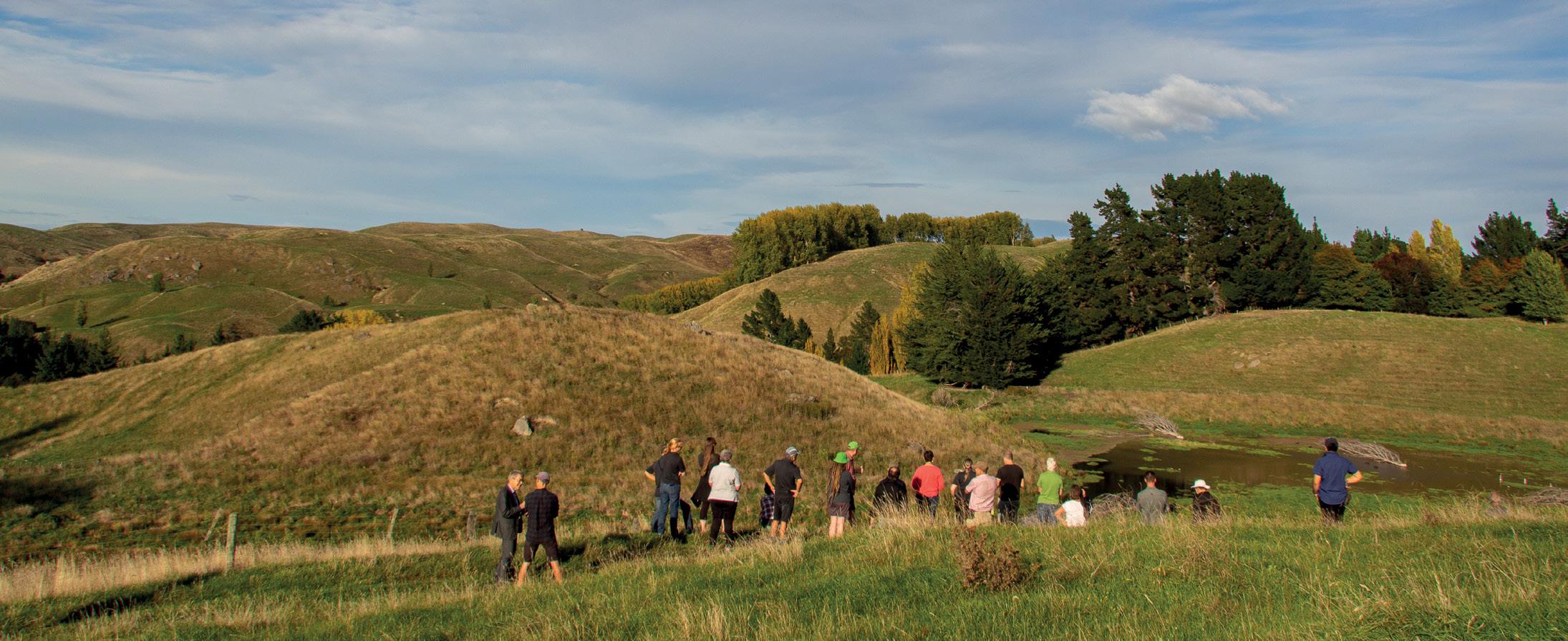
5 minute read
Champions Series: Bronwyn and
Growing something different – a journey to starting an asparagus business
After a career involved in dairy farming, a Canterbury pair wanted to do something different. Access to water for irrigation allowed them to do just that.
Advertisement
The long-awaited first crop of asparagus is finally ready for Bronwyn and David Marsh, who have recently established My Farm Fresh, selling their home-grown vegetables. Growing asparagus is a change for the pair who have spent most of their lives involved with pastoral farming. The idea came about after they had purchased land on the outskirts of Ashburton.
“Growing food is important to us, but after many years of dairy farming and me being a stock agent we decided we’d do something different that didn’t involve animals, and looked into what we could grow out of the ground instead,” Dave said.
After tossing up a few ideas the pair decided on growing asparagus, and with that there was a mad rush to get everything organised and planted, Bronwyn said.
By early November 2019 they had three hectares planted and last year they did another four. It has been a waiting game for them but now they can finally begin to pick the first three hectares they planted. They are only picking for a month, to retain energy in the young growing asparagus. Next season it will be able to be picked for ten weeks. They have planted three varieties of crown.
“It’s hard work waiting to get something from it,” Bronwyn said, “but it’s certainly satisfying seeing it grow.”
Turning their hands at something different meant they asked for lots of advice, Dave said, and one of the pieces of advice they were given was to use drip irrigation and fertigation.
They installed irrigation with planting in 2019. “We wanted to be water savvy, and we wanted a system that could fit in with how we wanted to run our overall system.”
Across the seven hectares, there are 42 lineal kilometres of dripline, equivalent to the length of 3,500 rugby fields.
Dave said, “We chose drip because we could get the water exactly where we want it and we didn’t have to worry about shifting irrigators.” He said an unintended benefit of that was they weren’t having as many weed problems as they thought they would. Because the asparagus plants were getting the water, the soil elsewhere was dry so didn’t grow many weeds.

Asparagus are planted similarly to potatoes in beds. They can be planted as crowns, which are one year old roots or seeds. From crowns they take two years to mature. Once an asparagus plant is mature the seasonal vegetable can provide harvests for over 15 years. The asparagus season in New Zealand is July to December in warm areas and September to December in cooler areas.

Their water was sourced from Ashburton Lyndhurst (ALIL) irrigation scheme, and they said without it and without reliable water for irrigation they wouldn’t have done it.
“It’s a big investment and we wanted to make sure we could grow a good crop whatever the weather.”
The amount of water required by the asparagus was, of course, weather and soil moisture dependent, which they measured, Dave said. However in the drier months an individual mature asparagus fern could need up to 50ml of water a week.
Their irrigation season was late November to March, give or take, and they also put on nitrate-based fertiliser and sulphate-based fertiliser through the fertigation system.
“You don’t want to overwater. There’s a lot of individual plant management required, a bit different to growing grass like we’re used to,” Bronwyn said.
Being a new business, building their brand had also been important. The name My Farm Fresh didn’t come easy and they had tossed up a few for a while. “We chose this because it’s all about eating food fresh from the farm.” Dave said, “Asparagus is best eaten fresh.”
“It’s been a big learning curve, setting up a website. We have been lucky to have great people to help and advise us.”
They said it was great to have lots of people excited about what they were doing. They planned to sell locally at markets and their roadside stall, and already had a few restaurants interested.
Alongside building their brand they also had to build their packing house and develop packaging.
Bronwyn said when they were busy, they would have six extra people helping to pick in the morning and pack in the afternoon.
Being a reasonably small industry, everyone had different set ups and following advice they had set up what they thought would be best for them, Bronwyn said. They were also trialling different packaging methods with the goal being zero waste.
The pair said that from now until early November they would be busy picking and packing, and they hoped the frosts stayed away.
“Once the plants are out of the ground, they can’t really handle temperatures below zero, so that’s a challenge for us,” Bronwyn said. Like for many other businesses Covid had been a challenge for them, especially the most recent lockdown.
“We needed to get permits to sell and whatnot, and during lockdown we still needed to make sure we got these in time otherwise we wouldn’t have been able to sell, and the asparagus was still coming out of the ground.”
Being their first harvest, they said they had a lot to learn and agreed it would be a matter of trial and error. We’re looking forward to seeing what they achieve and enjoying plenty of asparagus to eat along the way.
“We love to eat it which hopefully means everyone else will too.” Bronwyn picks asparagus, which is physically demanding and requires extra sets of hands during busy times.












